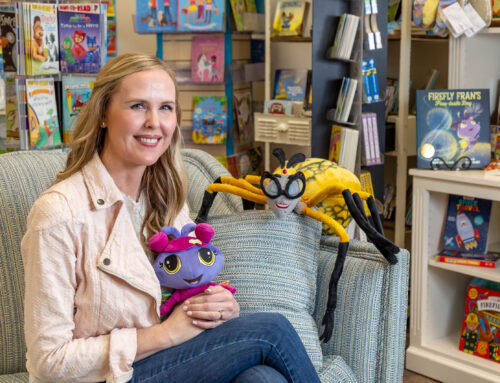Time for a break in the action with a few reflections on children and childlikeness during these grown-up days of political earnestness.
Quirky novelist Anne Lamott first: “When we have children, we know they will need us, but we don’t have a clue how hard it’s going to be. We also can’t understand when we’re pregnant … how profound and dicey it is to have a shared history with a child, shared blood, shared genes, even humor. It means we were actually here on earth for a time, like the Egyptians with their pyramids, but with kids, it’s an experiment: You wait and see what will come of it, and with people, that almost always means a mess.”
Commentary: Everyone’s life is messy, thanks to the human condition, and the human condition will not make an exception for our kids any more than it did for us. So, we must resist living through our kids as if they are our chance for immortality, our Egyptian pyramids that will make generations that follow gawk in wonder at how we accomplished such marvels as these children.
Literary lion John Updike next, doing his best Robert Fulghum impression (“Everything I Really Needed to Know I Learned in Kindergarten”): “The only observations worth making are those that sink in upon you in childhood. We don’t know we’re observing, but we see everything. Our minds are relatively blank, our memories are not crammed full of all sorts of names, so that the impressions we gather in the first 12 years are enormous and vivid and meaningful — they come laden with meaning, in a way that experience does not later on.”
Commentary: Addressing disciples competing with one another for greatness, Jesus said, “Unless you become as a little child you cannot enter the kingdom of God.” Ambition to be so big can rob you of the humility you need to go through the small door that leads to the realm of God. Alice was just small enough and curious enough to fall through the rabbit hole. Grown-ups don’t fall in because they don’t fall for such a thing in their too-big pursuits.
Finally, the late Christian curmudgeon G.K. Chesterton: “A child kicks his legs rhythmically through excess, not absence, of life. Because children have abounding vitality, because they are in spirit fierce and free, therefore they want things repeated and unchanged. They always say, Do it again; and the grown-up person does it again until he is nearly dead. For grown-up people are not strong enough to exult in monotony. But perhaps God is strong enough to exult in monotony. It is possible that God says every morning, do it again to the sun; and every evening, do it again to the moon. It may not be automatic necessity that makes all daisies alike; it may be that God makes every daisy separately, but has never got tired of making them. It may be that He has the eternal appetite of infancy; for we have sinned and grown old, and our Father is younger than we.”
Commentary: If God, who is the Ancient of Days, is younger than we because God never tires of monotony, maybe we ought to take another look at things we think we already know and take for granted. Maybe our quest for newness is really a search for freshness.
I’ve decided what I want to be when I grow up: the freshest person you know.





